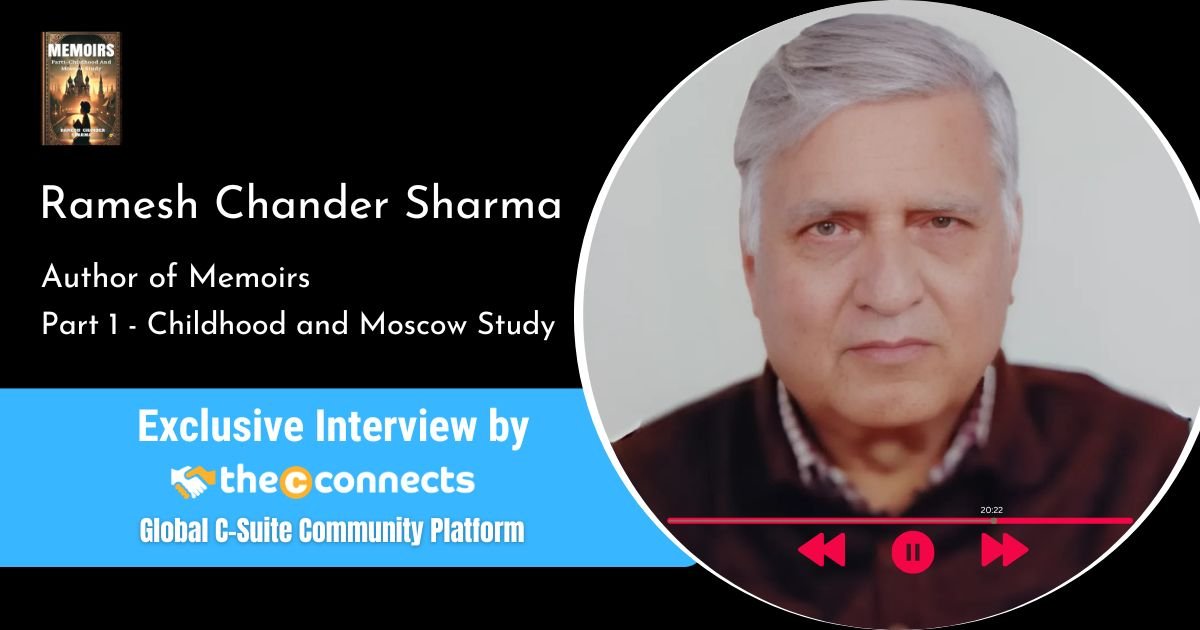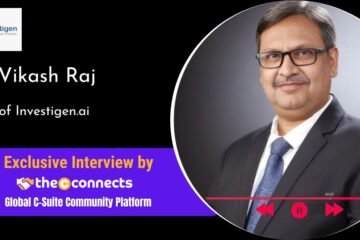TheCconnects: RameshChander Sharma Ji, thank you for joining us today. Your life story, from growing up in post-Partition Raekot to studying in Moscow and a decades-long banking career, feels like a microcosm of India’s resilience. What’s one moment from your early years that still defines you?
Ramesh Chander Sharma: Thank you for having me. One moment that stands out is the community spirit in Raekot after Partition. Our family, like many others, had lost everything in Pakistan. But in this tiny township, Hindu and Sikh refugees banded together, sharing food, labor, and hope. My father, a teacher, often said, “Samman se jeevan, na dhann se” (Dignity over wealth). That ethos of collective upliftment is still my compass.
TheCconnects: Your decision to leave Delhi University mid-course for Moscow in 1971 seems bold. What drew you to the Soviet Union, and how did that experience shape your worldview?
Ramesh Chander Sharma: Ah, Moscow! The scholarship to Peoples’ Friendship University was a serendipitous opportunity. I arrived in a land where Communism was not just theory but lived reality. The stark contrasts between Soviet socialism and India’s post-colonial struggles fascinated me. I witnessed a society prioritizing education and healthcare over materialism, a lens that later influenced my banking philosophy. But the biggest lesson? Systems matter, but human dignity transcends ideologies.
TheCconnects: Transitioning from academia to a 34-year career at UCO Bank must have been challenging. What was your “breakthrough moment” in banking?
Ramesh Chander Sharma: My first breakthrough was surviving the initial years! UCO Bank in the late ’70s was a bureaucratic labyrinth. But during the 1982 liberalization wave, I led a project to digitize rural loan disbursements. Skeptics called it folly, but we proved that technology could democratize access. That success taught me: Innovation isn’t about grand visions, it’s solving small, urgent problems at scale.
TheCconnects: Your memoir, Memoirs: Part 1 – Childhood and Moscow Study, delves into your early years and Soviet education. Why did you choose to structure the book this way, and how does it reflect your journey?
Ramesh Chander Sharma: Writing Memoirs: Part 1 – Childhood and Moscow Study was a labor of love. I wanted to anchor the narrative in two defining phases: my childhood in Raekot, where resilience was etched into our daily lives, and my Moscow years, where I grappled with new ideologies. The book isn’t just about dates or events, it’s about how those experiences shaped my values. For instance, I recount how my father’s insistence on dignity influenced my approach to rural banking decades later.
TheCconnects: How did you balance personal storytelling with historical context in the memoir?
Ramesh Chander Sharma: The challenge was to make history relatable. For example, when describing Partition, I focus on sensory details, the smell of smoke from burning homes, the sound of trains arriving with refugees. Similarly, in the Moscow chapters, I contrast the idealism of Soviet education with the rigidity of its bureaucracy. The goal was to show that history isn’t just macro-events; it’s lived in small, human moments.
TheCconnects: What was the most difficult part of writing Memoirs: Part 1?
Ramesh Chander Sharma: Reliving the loss of my daughter, Ashima. The book is dedicated to her, and her absence looms over every page. But writing became therapeutic. I’d imagine her asking, “Baba, what happened next?” Her memory gave me the courage to confront painful memories and celebrate the resilience of ordinary people.
TheCconnects: How has the response to your memoir been so far?
Ramesh Chander Sharma: Heartening! Readers from Punjab connect deeply with the Partition stories, while younger audiences are intrigued by the Soviet chapter. What surprises me is how many bankers have reached out, saying the book humanizes an industry often seen as cold. It’s validation that stories matter, even in spreadsheets and algorithms.
TheCconnects: If Memoirs: Part 1 were adapted into a film, who would you cast to play your younger self?
Ramesh Chander Sharma: A young actor from Punjab with a knack for mischief! But seriously, the film would need someone who embodies curiosity and resilience. Maybe a discovery from regional cinema. The Soviet chapters would require a stark contrast, think wide-eyed idealism meeting bureaucratic rigidity.
TheCconnects: Let’s pivot to your professional insights. What’s the biggest misconception about banking in India?
Ramesh Chander Sharma: That it’s just about numbers. Banking is fundamentally about trust. Post-liberalization, institutions chased profit margins but forgot that rural India’s faith in them was built on personal relationships. The 2008 crisis proved that greed without empathy crashes systems. My mantra? “Banking is a social service in profit’s clothing.”
TheCconnects: If you were advising a fintech startup today, what would you warn them about?
Ramesh Chander Sharma: Don’t automate empathy. Apps can streamline loans, but they can’t replace the human judgment needed for marginalized borrowers. Remember the 2010 microfinance crisis? Over-automation led to exploitation. My advice: Use tech as a bridge, not a barrier.
TheCconnects: Your family migrated with nothing. How did that shape your approach to financial inclusion?
Ramesh Chander Sharma: Poverty isn’t just about money, it’s about dignity. My father took a ₹40/month teaching job, but he ensured we never felt “less than.” At UCO Bank, I pushed for microcredit schemes because I’ve seen how a ₹5,000 loan can turn a refugee’s shack into a thriving grocery store. Financial inclusion isn’t charity; it’s restoring agency.
TheCconnects: You’ve witnessed India’s economic evolution from License Raj to digital payments. What’s the next frontier?
Ramesh Chander Sharma: Financial literacy. UPI and NEFT are revolutionary, but 60% of rural India still fears digital transactions. The next leap isn’t tech, it’s education. Imagine village haats with QR codes, but also workshops teaching grandmothers to use them! That’s real progress.
TheCconnects: Memoirs: Part 1 mentions Soviet ideals influencing your work. How do those values apply to today’s capitalist world?
Ramesh Chander Sharma: The USSR’s flaws were glaring, but its emphasis on collective welfare resonates. Today’s billionaires funding space travel while millions lack clean water? That’s imbalance. Capitalism needs a moral compass, like Germany’s social market economy. My Moscow years taught me: Growth without equity is tyranny.
TheCconnects: That sounds compelling. As you move forward, what advice would you offer aspiring entrepreneurs in banking or finance?
TheCconnects: Focus on solving genuine problems, not chasing buzzwords. Build transparent, user‑centric products that address real pain points, whether it’s financial literacy, credit access, or risk mitigation. Embrace technology to scale, but don’t underestimate regulatory complexity: cultivate strong relationships with compliance teams from day one. Assemble multidisciplinary teams, legal, tech, customer experience, to foresee challenges from every angle. And finally, view setbacks as data points, not failures. Each stumble refines your model and deepens your resilience.
TheCconnects: Before we wrap up, where can readers find your book if they’d like to read more about your inspiring journey?
Ramesh Chander Sharma: Absolutely. My book, Memoirs: Part 1 – Childhood And Moscow Study, is available for purchase on Amazon in both print and e-book formats. It’s a heartfelt account of my early life, the challenges of growing up in post-Partition India, and the transformative years I spent studying in Moscow. I truly hope readers find it both engaging and meaningful.
TheCconnects: Thank you so much for sharing your remarkable journey and insights, Mr. Sharma. Is there any final message you’d like to leave with our readers?
Ramesh Chander Sharma: Thank you, it’s been a pleasure. To every reader, remember that success isn’t a straight line but a tapestry woven from perseverance, continuous learning, and empathy. Whether you’re just starting out or well along your path, stay curious, remain true to your values, and never underestimate the power of lifting others as you climb.



